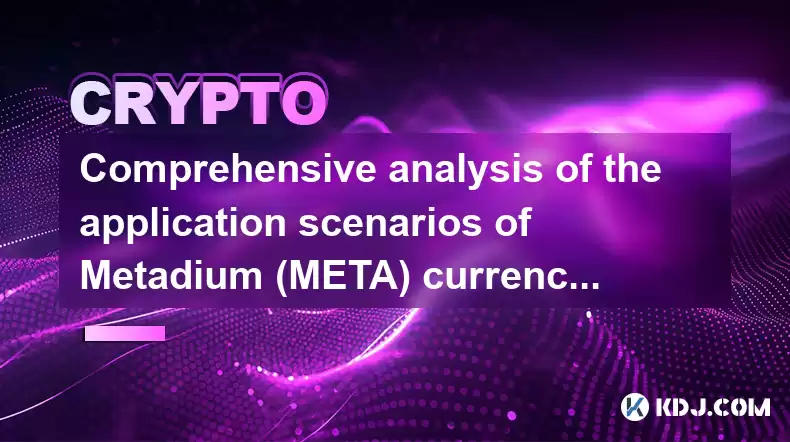-
 Bitcoin
Bitcoin $114200
-0.03% -
 Ethereum
Ethereum $3649
-0.25% -
 XRP
XRP $2.963
-2.31% -
 Tether USDt
Tether USDt $0.9997
-0.02% -
 BNB
BNB $761.0
-0.17% -
 Solana
Solana $164.6
-2.06% -
 USDC
USDC $0.9997
-0.02% -
 TRON
TRON $0.3321
-0.45% -
 Dogecoin
Dogecoin $0.2010
-2.49% -
 Cardano
Cardano $0.7282
-2.60% -
 Hyperliquid
Hyperliquid $37.56
-2.50% -
 Stellar
Stellar $0.3935
-3.18% -
 Sui
Sui $3.440
-1.36% -
 Chainlink
Chainlink $16.49
-1.80% -
 Bitcoin Cash
Bitcoin Cash $558.0
-1.38% -
 Hedera
Hedera $0.2407
-1.49% -
 Avalanche
Avalanche $22.27
-2.29% -
 Ethena USDe
Ethena USDe $1.001
0.00% -
 Litecoin
Litecoin $118.6
-4.00% -
 UNUS SED LEO
UNUS SED LEO $8.995
0.02% -
 Toncoin
Toncoin $3.190
-5.11% -
 Shiba Inu
Shiba Inu $0.00001214
-1.51% -
 Uniswap
Uniswap $9.655
-1.88% -
 Polkadot
Polkadot $3.638
-0.50% -
 Monero
Monero $292.1
-1.82% -
 Dai
Dai $1.000
-0.03% -
 Bitget Token
Bitget Token $4.312
-0.90% -
 Cronos
Cronos $0.1389
-0.32% -
 Pepe
Pepe $0.00001026
-2.44% -
 Aave
Aave $258.2
-1.12%
Comprehensive analysis of the application scenarios of Metadium (META) currency
Metadium's versatile application scenarios span decentralized identity management, data ownership, data marketplaces, compliance, governance, interoperability, gaming, and the metaverse, empowering users and unlocking new possibilities in the blockchain ecosystem.
Jan 01, 2025 at 01:29 am

Comprehensive Analysis of the Application Scenarios of Metadium (META) Currency
Key Points:
- Metadium's unique features and technological advantages
- Diverse application scenarios for META tokens in the blockchain ecosystem
- Real-world use cases and examples of META's utility
- Challenges and future prospects of META's application
Introduction:
Metadium (META) is a blockchain-based platform that aims to provide decentralized identity solutions and data ownership to individuals. It utilizes a unique consensus mechanism known as Proof-of-Contribution (PoC) and offers a variety of features that enhance its utility within the cryptocurrency and blockchain industry. This article delves into the diverse application scenarios of META currency, exploring its transformative potential in various sectors.
1. Decentralized Identity Management
META empowers users with control over their digital identities by introducing a decentralized, verifiable credential system. This allows individuals to create, manage, and share their credentials securely and transparently, eliminating the need for intermediaries and reducing the risk of fraud. META's identity management capabilities cater to a wide range of industries, including healthcare, finance, and education.
2. Data Ownership and Control
In the realm of data ownership, Metadium enables users to regain control over their personal data. Through the META platform, individuals can selectively share and monetize their data, empowering them to benefit from the value they create online. META's data ownership model fosters a more equitable and privacy-conscious digital ecosystem, where individuals have agency over their data while businesses gain access to valuable insights.
3. Data Marketplace and Exchange
Metadium's decentralized data marketplace facilitates secure data transactions between data providers and consumers. Data providers can earn rewards for sharing their anonymized and aggregated data, while consumers gain access to valuable insights and research. META's data marketplace promotes data liquidity and fosters innovation in the data-driven economy.
4. Decentralized KYC and AML
In the field of compliance, Metadium's decentralized Know-Your-Customer (KYC) and Anti-Money Laundering (AML) solutions offer a cost-effective and efficient alternative to traditional processes. By utilizing the META platform, businesses can streamline their KYC/AML procedures, while users benefit from reduced verification time and enhanced privacy.
5. Blockchain Voting and Governance
META's Proof-of-Contribution consensus mechanism empowers individuals to participate in decentralized voting and governance processes. Token holders can cast their votes on important platform decisions, ensuring the transparency and legitimacy of the decision-making process. META's voting system enables wider participation and fosters a sense of community among its users.
6. Interoperability and Cross-Chain Transactions
Metadium is designed to facilitate interoperability between different blockchains, allowing seamless asset transfer and data exchange across disparate networks. META tokens can be used as a bridge currency, enabling users to access liquidity from various blockchain platforms.
7. Gaming and Metaverse
META's decentralized identity and data ownership features play a significant role in the gaming and metaverse industries. Players can create unique and verifiable identities that can be used across multiple gaming platforms, and they have full control over their in-game assets and data. META's integration into the metaverse enables a more immersive and personalized gaming experience.
Challenges and Future Prospects
Despite its promising applications, META faces certain challenges that need to be addressed for its widespread adoption. These include scalability issues, the need for increased adoption and awareness, and competition from other decentralized identity solutions. However, Metadium continues to make significant advancements in its technology and partnerships, paving the way for the future adoption of META currency in various sectors.
Frequently Asked Questions (FAQs)
Q: What is the unique value proposition of Metadium?
A: Metadium offers a decentralized, user-centric platform that empowers individuals with control over their digital identities and data. Its Proof-of-Contribution consensus mechanism and unique features differentiate it from other blockchain platforms.
Q: What are the potential applications of META tokens?
A: META tokens can be utilized in a wide range of applications, including decentralized identity management, data ownership and control, data marketplace transactions, decentralized KYC/AML, blockchain voting and governance, interoperability and cross-chain transactions, and gaming and metaverse experiences.
Q: How secure is Metadium's platform?
A: Metadium employs robust security measures to safeguard user data and transactions. Its decentralized nature reduces the risk of centralized hacking attacks, and its consensus mechanism ensures the integrity of the network.
Disclaimer:info@kdj.com
The information provided is not trading advice. kdj.com does not assume any responsibility for any investments made based on the information provided in this article. Cryptocurrencies are highly volatile and it is highly recommended that you invest with caution after thorough research!
If you believe that the content used on this website infringes your copyright, please contact us immediately (info@kdj.com) and we will delete it promptly.
- Coinbase, Financing, and the Crypto Market: Navigating Choppy Waters in NYC Style
- 2025-08-06 12:50:11
- Bitcoin in Indonesia: Crypto Education and Economic Strategy
- 2025-08-06 12:50:11
- DeriW Mainnet: Zero Gas Fees Revolutionize On-Chain Derivatives Trading
- 2025-08-06 10:30:11
- IOTA, Cloud Mining, and Eco-Friendly Crypto: A New York Investor's Take
- 2025-08-06 10:30:11
- Kaspa (KAS) Price Prediction: August 6 - Will It Break Free?
- 2025-08-06 10:50:12
- Pension Funds, Bitcoin ETFs, and Exposure: A New Era of Institutional Crypto Adoption
- 2025-08-06 12:55:12
Related knowledge

What is Chainlink (LINK)?
Jul 22,2025 at 02:14am
Understanding Chainlink (LINK): The Decentralized Oracle NetworkChainlink is a decentralized oracle network designed to bridge the gap between blockch...

What is Avalanche (AVAX)?
Jul 22,2025 at 08:35am
What is Avalanche (AVAX)?Avalanche (AVAX) is a decentralized, open-source blockchain platform designed to support high-performance decentralized appli...

What is Polkadot (DOT)?
Jul 19,2025 at 06:35pm
Understanding the Basics of Polkadot (DOT)Polkadot (DOT) is a multi-chain network protocol designed to enable different blockchains to transfer messag...

What is Litecoin (LTC)?
Jul 23,2025 at 11:35am
Overview of Litecoin (LTC)Litecoin (LTC) is a peer-to-peer cryptocurrency that was created in 2011 by Charlie Lee, a former Google engineer. It is oft...

What is Monero (XMR)?
Jul 21,2025 at 10:07am
What is Monero (XMR)?Monero (XMR) is a decentralized cryptocurrency designed to provide enhanced privacy and anonymity for its users. Unlike Bitcoin a...

How to add indicators to Ethereum chart on TradingView?
Jul 19,2025 at 07:15am
What Is an Ethereum Chart on TradingView?The Ethereum chart on TradingView is a visual representation of the price movement of Ethereum (ETH) over a s...

What is Chainlink (LINK)?
Jul 22,2025 at 02:14am
Understanding Chainlink (LINK): The Decentralized Oracle NetworkChainlink is a decentralized oracle network designed to bridge the gap between blockch...

What is Avalanche (AVAX)?
Jul 22,2025 at 08:35am
What is Avalanche (AVAX)?Avalanche (AVAX) is a decentralized, open-source blockchain platform designed to support high-performance decentralized appli...

What is Polkadot (DOT)?
Jul 19,2025 at 06:35pm
Understanding the Basics of Polkadot (DOT)Polkadot (DOT) is a multi-chain network protocol designed to enable different blockchains to transfer messag...

What is Litecoin (LTC)?
Jul 23,2025 at 11:35am
Overview of Litecoin (LTC)Litecoin (LTC) is a peer-to-peer cryptocurrency that was created in 2011 by Charlie Lee, a former Google engineer. It is oft...

What is Monero (XMR)?
Jul 21,2025 at 10:07am
What is Monero (XMR)?Monero (XMR) is a decentralized cryptocurrency designed to provide enhanced privacy and anonymity for its users. Unlike Bitcoin a...

How to add indicators to Ethereum chart on TradingView?
Jul 19,2025 at 07:15am
What Is an Ethereum Chart on TradingView?The Ethereum chart on TradingView is a visual representation of the price movement of Ethereum (ETH) over a s...
See all articles

























































































